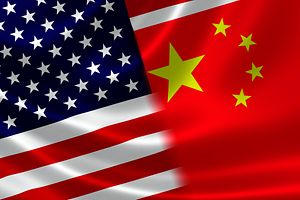Chinese President Xi Jinping has been speaking recently of the importance of partnerships rather than alliances. His encouragement of a new model of international relations comes at a pivotal moment in China’s modern history. While the country’s economy is slowing, growth appears to have stabilized at a comfortable level. Meanwhile, China is growing more confident in regional politics while expanding its circle of influence.
As U.S. President Barack Obama’s trip to China to attend the APEC Summit approaches, close inspection reveals the stakes are high for U.S.-China relations during what is quickly becoming a significant era.
In a recent poll by The Chicago Council on Global Affairs (disclosure: I work at the Council, but am not involved in polling), Americans rated China just behind the U.S. as the most influential country in the world, ahead of the EU as a whole. But as China’s influence grows, the Council’s polling shows that Americans have less interest in engaging China. Only 33 percent of Americans encourage developing stronger ties with China – down from 40 percent in 2012. And the majority of Americans are willing to risk relations with China for developing stronger relations with regional allies. Finally, a large majority, 77 percent, propose spying on China.
Obama’s policies appear to be following the public’s perceptions, making a path toward engagement a rocky one. A focus on U.S. alliances in Asia is understandable, especially as China continues to flex its muscles. But there may be no better time than now to take a page out of Xi’s burgeoning emphasis on partnership.
Why? Because while there is no doubt that China has decades of growing pains still to endure, signals suggest that the Xi-era is bringing about real, systemic change.
While most countries are still stocking up their foreign reserves, China’s record-breaking acquisition of U.S. dollars appears to have topped out. In fact, China’s acquisition of all foreign currencies appears to be falling away, while the renminbi has slowly appreciated with some countries beginning to stockpile it.
The change continues. China appears to be serious about privatizing major industries. It has fixed its employment reporting, while it has hand-slapped or imprisoned more than 200,000 corrupt party leaders. And Beijing is continuing to push the “New Silk Road,” first formalized in 2013, in an effort to extend economic partnership to the south and the west over land and sea.
Regionally, the Shanghai Cooperation Organization (SCO) has taken steps toward increased relevance by opening the door for India, Pakistan, and Iran to become full members. And relations with Russia continue to develop, not least of which with a natural gas deal that will help to fuel China’s environmental for decades to come.
While China continues to develop its strategy (sometimes fumbling, sometimes impressive), U.S. representatives have continually stated that the pivot to Asia is not about containment. Fair enough – the U.S. has alliances it must uphold. But there is a great opportunity to set a new course in U.S.-China relations while still acknowledging regional balance between Beijing’s vision and Washington’s. Obama’s second trip to China would be a good opportunity to rekindle that process.
Jonathan Macha is Director of Public Programs at The Chicago Council on Global Affairs.

































